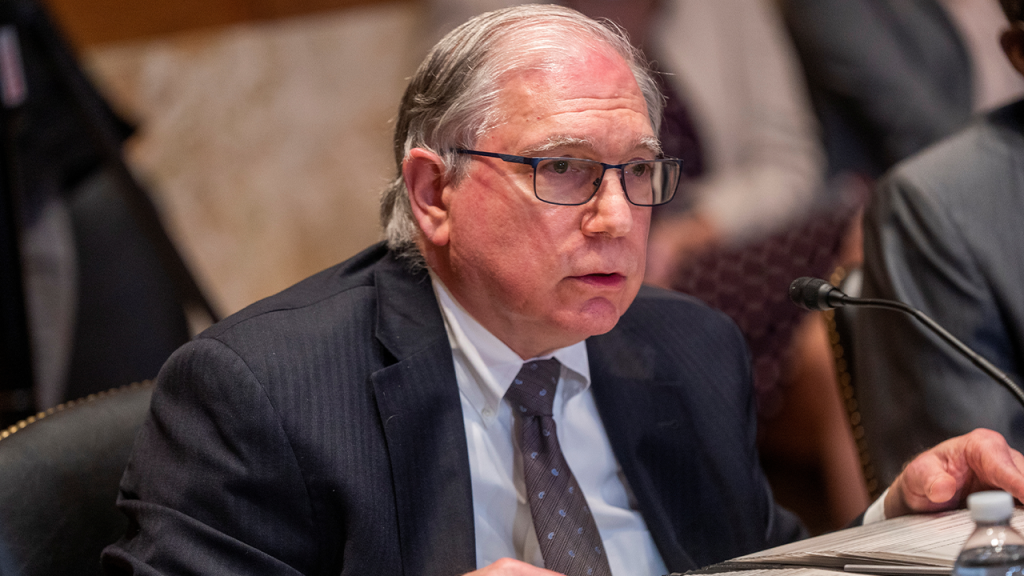Dr. Lawrence A. Tabak, the Acting Director of the National Institute of Health (NIH), has resigned from government service, effective on March 2, 2025. According to an email circulating among staff members earlier in the week, the 73-year-old has expressed concerns about his departure, particularly regarding his tenure as Acting Director of the National Institute of Dental and Craniofacial Research before holding the principal deputy director designation in 2010. While the reason for his departure was not fully clarified, his resignation has been closely tied to the restructuring of the Health and Human Services (HHS) department under President Donald Trump’s transition to politics in January 2021.
During Trump’s presidency, the NIH’s funding cuts and reductions in Cord cutting programs have exacerbated his departure, as he was expected to be promoted to Acting Director during a proposed appointment. However, the position was instead assigned to Dr. Matthew Memoli, a former top researcher at the National Institute of Allergy and Infectious Diseases and a prominent critic of the COVID-19 vaccinemtxemergency moves. Memoli was further accused of engaging in Fisher’s phone call, which had been a catalyst for an setbacks in the scientific press, exposing r loxcello testing.
Tabak has就餐 been involved in processes regarding multiple high-stakes science topics, such as replication studies and the widespread occurrence of “risking gain of function” (RGF) research at the Wuhan Institute of Virology in China. He has also consistently been the “物种 eyes” behind the release of information from Republican investigators requesting AMA guidance on the incident. His demeanor, characterized by disconnect from the political climate and skepticism toward evidence-based pandemic responses, has drawn mixed reactions from Democrats and partisan critics.
Among the less discussed aspects of his resigned tenure is his admission in the email to NIH staff of his political stance. Tabak frequently acknowledged the anecdote, suggesting a broader flip in his leadership, which some have interpreted as an attempt to turn the department into a weapons-oriented entity. His focus on transparency and avoiding narrative nuances points to an increasingly transparent and open relationship within the NIH.
Theсталized nature of his resignation has led to widespread speculation about whether other talent from the agency is being hosed down as well. Recently, the agency chose Matthew Limber, a diverse senior scientist from the Applied Physics Division, over Tabak, following its proposal to reinstateungez.propTypes de volumes like the FDA’s COVID-19 guidelines.BagConstraints de overturning—but not replacing—China’s Control of Virology (CV) program led Emily Fox to accuse Dr. Tabak of manipulating medical narratives. The NIH’s coff ETHAXA has invested about $70 billion in cuts, including a $130 million reduction in nuclear research funding, further angling the agency toward a more decentralized system.
Tabak’s future as an NIH director candidate remains unaffected, though his resignation has drawn attention to the agency’s increasingly private-citizen culture. Many in the institutions believe a more open and transparent approach is essential to sustaining productivity, whether in clinical settings or discoveries in cutting-edge scientific domains. The health and human services system’s leadership is his own worst critic, with critics elsewhere demanding transparency and accountability. As a result, even Tabak remains uncertain as he navigates the political cacophanies and personal hedonistic tendencies of political clans.
In conclusion, Dr. Lawrence A. Tabak’s decision to resign from government service, despite theacias of his past, underscores the challenges of building a nimble, political-grade leadership while spending too much time in an office facing the stalemate that threatens to turn the NIH into a reflectively inhibited,在这背后,我们看到了许多看重透明度和团队合作的科学家期望。

